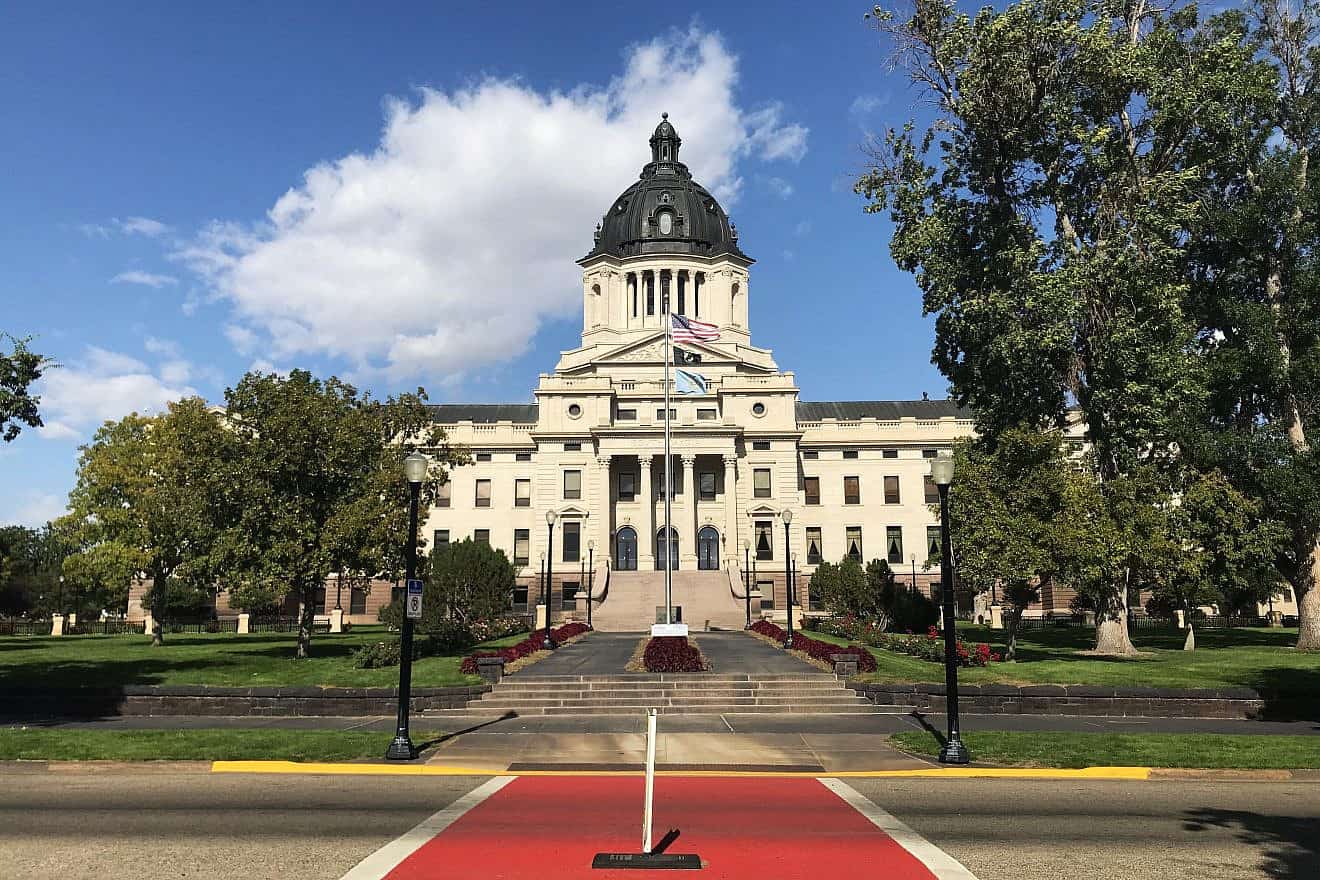The South Dakota state legislature passed HB1076, which enshrines the International Holocaust Remembrance Alliance’s working definition of antisemitism into law.
The state House of Representatives approved amendments on Friday of the bill, which passed the state Senate 31-3 on Feb. 21 and the state House 53-14 on Jan. 23.
“Fantastic day in the South Dakota legislature. The bill to block China and evil foreign governments from owning South Dakota agricultural land and the bill protecting our Jewish neighbors against antisemitic hatred are both on their way to my desk,” wrote South Dakota Gov. Kristi Noem, a Republican. “Looking forward to signing these.”
“In the state, by having a clear definition of antisemitism, law enforcement and education agencies can be better equipped to recognize and ultimately combat all forms of contemporary antisemitism,” Arthur Maserjian, chief of staff of the Combat Antisemitism Movement, told JNS.
He noted that “in South Dakota specifically, the law requires the consideration of the IHRA definition of antisemitism when investigating cases of discrimination through the division of human rights.”
“This will allow law-enforcement officials and legal authorities to better understand instances of antisemitism when committed as criminal acts and potential hate crimes,” he said.
Sacha Roytman, CEO of Combat Antisemitism, lauded Noem “for making this legislation a policy goal of hers, strengthening the use of the IHRA working definition in South Dakota through legislation, following the December 2021 adoption via executive proclamation.”
South Dakota is the 12th U.S. state to codify the IHRA definition into law, and another 23 states have endorsed the working definition via resolutions or proclamations, according to the Israeli-American Council.
“South Dakota has sent an important message, not just within the state, but across the United States, that every form of antisemitism is unacceptable,” Joe Sabag, executive director of IAC for Action, told JNS in a statement.
“Without the IHRA definition, our community has suffered a civil rights deficit, where perpetrators of antisemitic discrimination would target Jews and Jewish institutions and then hide behind the false pretense that they were motivated by anti-Israel politics and not anti-Jewish bigotry,” Sabag said. “South Dakota’s passage of HB 1076 is an important step forward in a national effort to deal with the current antisemitism crisis we are facing.”
Elan Carr, CEO of the Israeli-American Council and a former U.S. special envoy to monitor and combat antisemitism, told JNS in a statement that “Rising Jew-hatred is a threat to all Americans, and South Dakotans today should feel deeply proud of what their government is doing to confront this scourge.”
“The great State of South Dakota has made the clearest possible statement that we’re going to identify, confront and call out antisemitism, and when it rises to the level of discrimination, we’re going to use the full force of the law to rout it out,” he said.
Jordan Cope, director of policy education at StandWithUs, stated that the IHRA definition “remains a tool of paramount importance for helping identify and quell the mounting tide of antisemitism.”
“South Dakota’s moral clarity on this matter sets a clear example from which other states ought to draw inspiration as Jews around the world desperately seek assurances of their own safety,” Cope added.
South Dakota has officially adopted the IHRA Definition. The new law requires the consideration of the definition of antisemitism when investigating unfair or discriminatory practices.
Thank you again Gov. @KristiNoem @Katie_Hruska @IacFor @danlederman @srosenthal924… pic.twitter.com/MIZS1AfoyM— Mark Goldfeder (@MarkGoldfeder) February 23, 2024


























